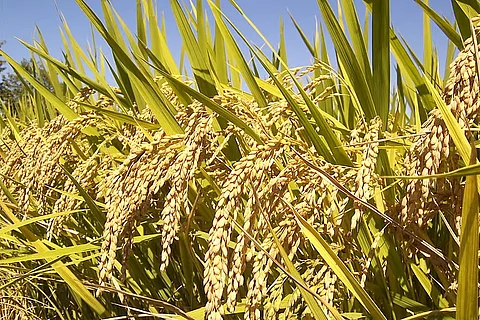

Traditional rice farming in India is now not only proving to be an obstacle in increasing farmers’ income, but the impact of climate change has also made it an even more risky proposition. A recent study has claimed that if farmers in India turn to alternative cereals such as millets, maize and sorghum instead of rice cultivation, they can not only reduce the production loss caused by climate change but can also increase their income.
The study, published in the journal Nature Communications, suggested that optimal allocation of rice area to alternative grains could reduce climate-induced production losses by up to 11 per cent. Also, a shift to alternative grains could increase farmers’ net profits.
According to the study, farmers select crops and decide to grow them by looking at the fluctuations in the price of the respective crop. That is, the price of the crop and the decision to grow it are deeply connected. The study suggested that the transition from rice to other crops could be faster if farmers were given economic incentives to switch.
The joint study conducted by institutions from the US, India and Italy supported the shift from rice to alternative grains, stating that Indian farmers always prefer rice due to its economic aspect. However, rice production is highly affected by climate change. On the other hand, cereals such as millets, maize and sorghum are climate-resistant and may also be economically viable in the long term.
The study was conducted by Dongyang Wei from the Department of Geography and Spatial Sciences, University of Delaware, US; Leslie Guadalupe Castro from the Department of Ecology, Evolution and Environmental Biology, Columbia University, New York, US; Ashwini Chhatre, Associate Professor and Executive Director, Bharti Institute of Public Sector Department, Indian School of Business, Hyderabad, India; Marta Tuninetti of the Department of Environment, Land and Infrastructure, Politecnico di Torino, Italy and Kyle Frankel Davis of the Department of Geography and Spatial Sciences at the University of Delaware, US.
According to the study, farmers’ sowing decisions for alternative cereals are very sensitive to price changes. Thus, it provides an important point for policy intervention.
“Our research shows that by strategically reducing rice cultivation and increasing cultivation of alternative grains, India can achieve greater stability in grain production and reduce the cost of farmers,” said Dongyang Wei, lead author of the joint study. “This can improve profitability. And this can be achieved without affecting overall calorie production,” Wei added.
Ashwini Chhatre, another author of the study, said, “This research emphasises that policymakers need to implement policies that promote the cultivation of climate-resilient crops while taking into account the economic factors influencing farmers’ decisions.”
The study also points out that it is important to address current pricing structures, which often favour rice cultivation due to government support policies. The researchers suggested that well-designed crop pricing schemes and incentives for climate-resilient crops could be effective tools to promote a more sustainable agricultural system.
The study findings provide valuable insights for policymakers given India’s heavy dependence on rice, and the need to enhance the resilience of India’s food systems to the increasing variability of climate change.